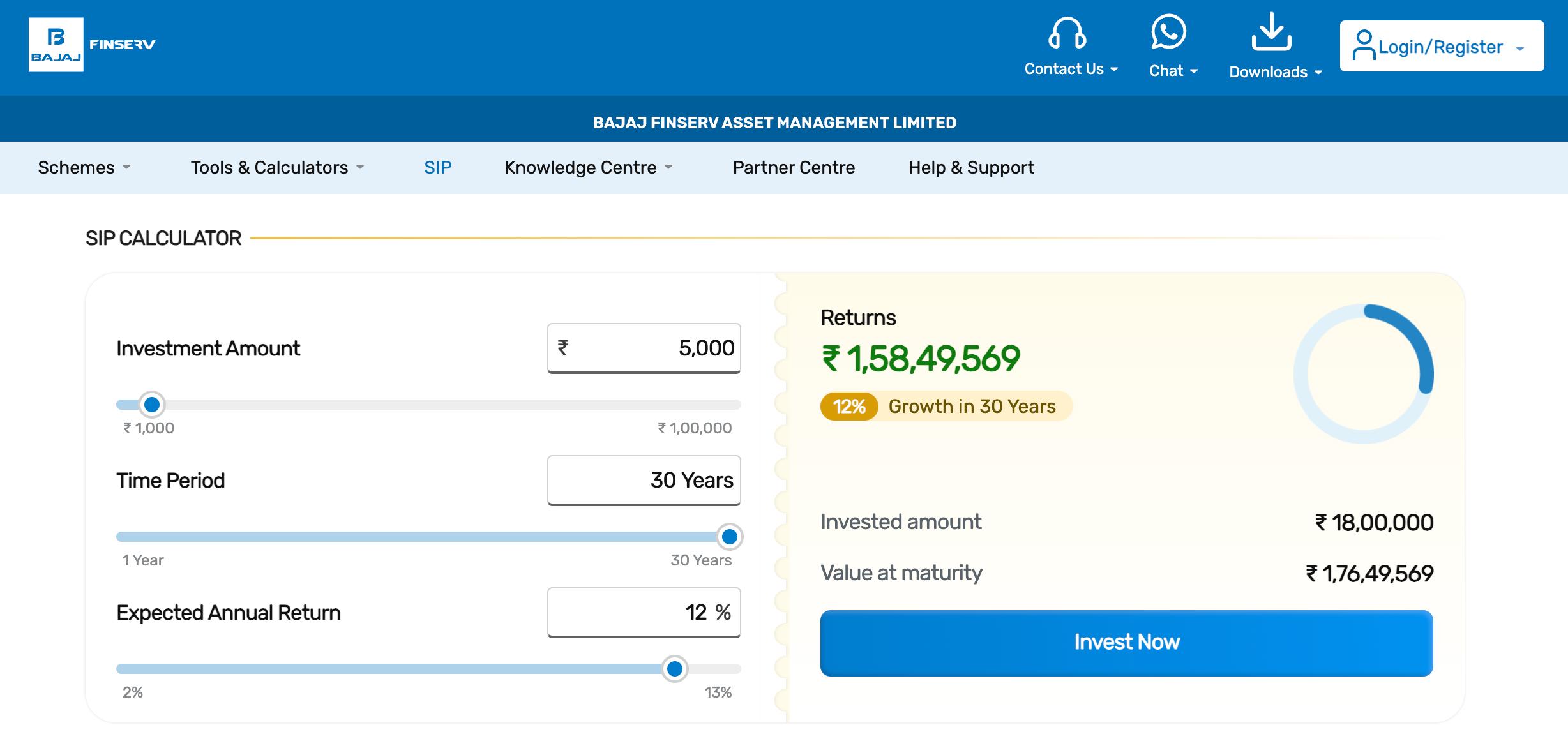Your 20s are often about starting your career, learning independence, and enjoying life. Investing might not be at the top of your mind, but this is actually an ideal time to start. One of the simplest and most effective ways to begin your investment journey is with a Systematic Investment Plan (SIP).

An SIP lets you invest a fixed amount at regular intervals, usually monthly, into a mutual fund of your choice. Over time, these small investments can grow into a large amount, thanks to the power of compounding. Let’s explore why starting an SIP in your 20s may be a game-changer for your financial future.
1. You have the advantage of time
The biggest advantage of starting an SIP early is time. In your 20s, you have decades ahead before you need to use most of your savings.
The longer your money stays invested, the more time it has to grow. Even small monthly investments can turn into big amounts if given enough time. This is because of compounding – earning returns on your returns.
For example, if you invest Rs. 5,000 a month in equity mutual funds through an SIP, and your investments grow at an average of 12% per year, in 30 years you could end up with a much larger sum than if you start in your 30s. You can check this using an SIP calculator to see the difference time can make.

2. You can start small and increase later
Many young earners worry they don’t have enough money to invest. The good news is, with an SIP, you don’t need a big amount to begin. You can start with as little as Rs. 500 a month.
As your income grows, you can slowly increase your SIP amount. This habit of regular investing builds discipline and helps you get used to setting aside money before spending. Over time, this ‘invest first, spend later’ approach can transform your financial life.
3. Lower risk through Rupee Cost Averaging
Markets go up and down. If you try to time your investments, you might end up buying at high prices and selling at low prices. SIPs help you avoid this mistake through rupee cost averaging.
When markets fall, your fixed SIP amount buys more units of the mutual fund. When markets rise, the same amount buys fewer units. Over time, your purchase cost averages out, reducing the impact of market volatility. This is especially useful for beginners investing in equity mutual funds.
4. It builds a strong financial habit
In your 20s, it’s easy to spend everything you earn. Starting an SIP helps you form the habit of saving and investing regularly.
Since SIPs are automatic, the money gets invested before you have a chance to spend it. This creates a sense of discipline and commitment towards your financial goals. The earlier you form this habit, the easier it is to manage money throughout your life.
5. Helps you achieve long-term goals
Whether you dream of buying a house, starting a business, travelling the world, or retiring early, SIPs may help you get there.
For long-term goals, equity mutual funds are often preferred because they have the potential to deliver higher returns compared to fixed deposits or savings accounts over many years. A small investment started in your 20s can grow enough to meet your big life goals later. Returns on savings accounts and fixed deposits are fixed; however, returns on mutual funds are subject to market risks.
By using an SIP calculator, you can plan how much you need to invest each month to reach your target amount.
6. Benefit from compounding at its fullest
Compounding is the process by which your investment earns returns, and those returns then start earning returns too.
In your 20s, even if you start small, the long time frame allows compounding to work powerfully. Think of it as a snowball rolling down a hill, starting small but growing bigger and faster as it moves. The earlier you start, the bigger the snowball when you need it.
7. You can take more risks and earn more
When you’re young, you can afford to take higher risks because you have more time to recover from short-term losses. Equity mutual funds, while more volatile than debt funds, have the potential to give relatively better returns over the long term.
An SIP in equity mutual funds during your 20s can ride out market ups and downs and give you the benefit of higher growth potential. Over 10–20 years, this can make a huge difference in your wealth.
8. Peace of mind through automated investing
Once you set up your SIP, the investment happens automatically every month. You don’t need to worry about market timing or remembering to invest. This frees you from stress and keeps your investment journey consistent.
The automation also removes emotional decision-making – so you’re less likely to stop investing when markets fall.
Conclusion
Starting an SIP in your 20s is like planting a tree early. It gives you shade and fruits for decades. The combination of time, discipline, compounding, and potential growth from equity mutual funds makes it a well-informed financial move that you can make.
You don’t need to start big. Start small, stay consistent, and let time do the heavy lifting. Use a simple SIP calculator to set your goals and track your progress.
Your future self will thank you for the steps you take today.
Disclaimer:
Mutual Fund investments are subject to market risks. Read all scheme-related documents carefully.
This document should not be treated as an endorsement of the views/opinions or as investment advice. This document should not be construed as a research report or a recommendation to buy or sell any security. This document is for informational purposes only and should not be construed as a promise of minimum returns or a safeguard of capital. This document alone is not sufficient and should not be used for the development or implementation of an investment strategy. The recipient should note and understand that the information provided above may not contain all the material aspects relevant to making an investment decision. Investors are advised to consult their investment advisor before making any investment decision in light of their risk appetite, investment goals, and horizon. This information is subject to change without any prior notice.
The content herein has been prepared based on publicly available information believed to be reliable. However, Bajaj Finserv Asset Management Ltd. does not guarantee the accuracy of such information, assure its completeness, or warrant that such information will not be changed. The tax information (if any) in this article is based on current laws and is subject to change. Please consult a tax professional or refer to the latest regulations for up-to-date information.